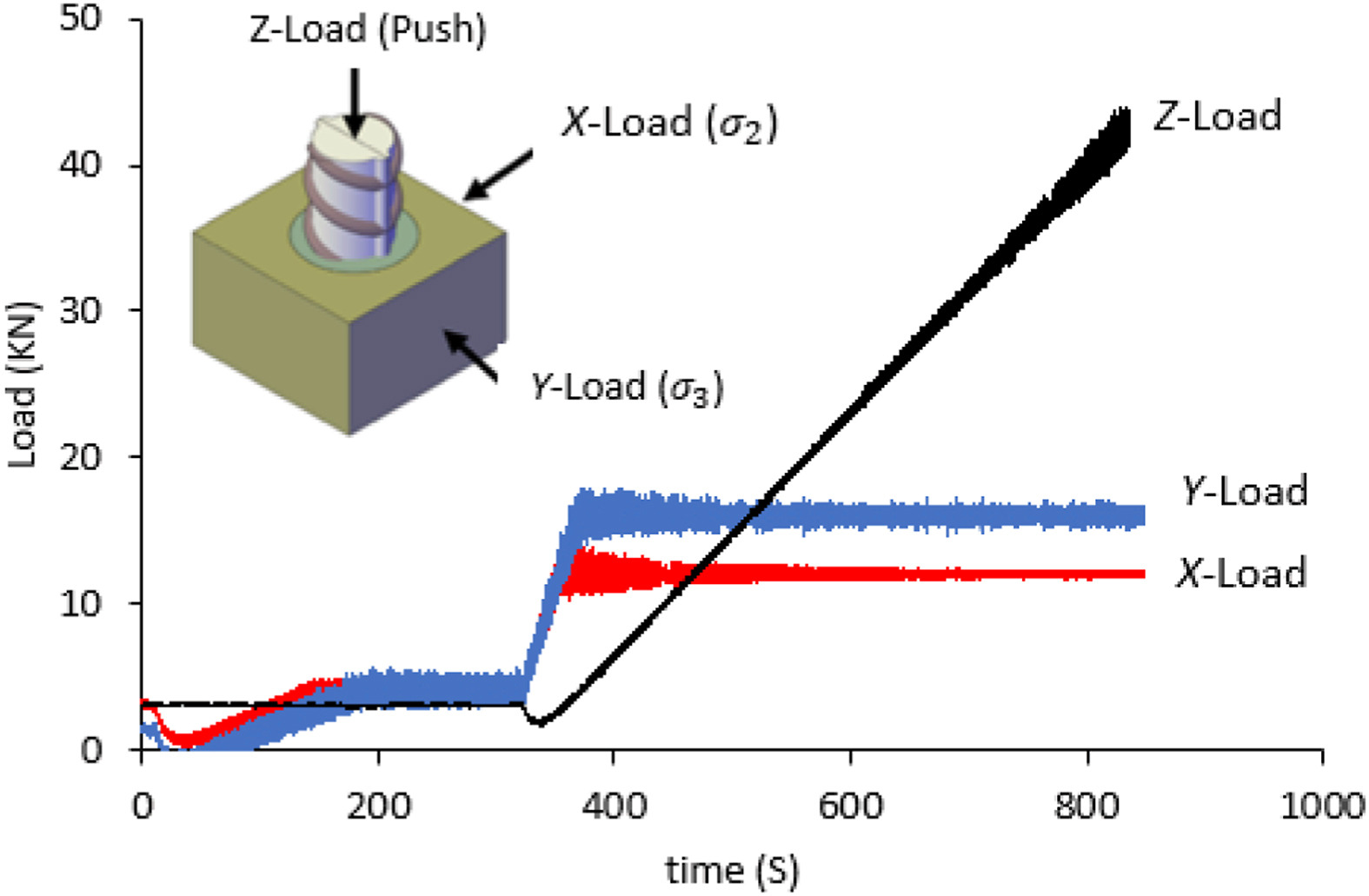JRMGE / Vol 16 / Issue 3
Failure characterization of fully grouted rock bolts under triaxial testing
Hadi Nourizadeh, Ali Mirzaghorbanali, Mehdi Serati, Elamin Mutaz, Kevin McDougall, Naj Aziz
Show More
a Centre for Future Materials (CFM), School of Engineering, University of Southern Queensland, Toowoomba, QLD, 4350, Australia
b School of Engineering, University of Southern Queensland, Springfield Central, QLD, 4300, Australia
c School of Civil Engineering, University of Queensland, St Lucia, QLD, 4072, Australia
d School of Surveying and Build Environment, University of Southern Queensland, Toowoomba, QLD, 4350, Australia
e School of Civil, Mining & Environmental Engineering, University of Wollongong, Wollongong, NSW, 2500, Australia
2024, 16(3): 778-789. doi:10.1016/j.jrmge.2023.08.013
Received: 2023-01-12 / Revised: 2023-05-31 / Accepted: 2023-08-14 / Available online: 2023-11-18
2024, 16(3): 778-789.
doi:10.1016/j.jrmge.2023.08.013
Received: 2023-01-12
Revised: 2023-05-31
Accepted: 2023-08-14
Available online: 2023-11-18
Confining stresses serve as a pivotal determinant in shaping the behavior of grouted rock bolts. Nonetheless, prior investigations have oversimplified the three-dimensional stress state, primarily assuming hydrostatic stress conditions. Under these conditions, it is assumed that the intermediate principal stress (σ2) equals the minimum principal stress (σ3). This assumption overlooks the potential variations in magnitudes of in situ stress conditions along all three directions near an underground opening where a rock bolt is installed. In this study, a series of push tests was meticulously conducted under triaxial conditions. These tests involved applying non-uniform confining stresses (σ2 ≠ σ3) to cubic specimens, aiming to unveil the previously overlooked influence of intermediate principal stresses on the strength properties of rock bolts. The results show that as the confining stresses increase from zero to higher levels, the pre-failure behavior changes from linear to nonlinear forms, resulting in an increase in initial stiffness from 2.08 kN/mm to 32.51 kN/mm. The load-displacement curves further illuminate distinct post-failure behavior at elevated levels of confining stresses, characterized by enhanced stiffness. Notably, the peak load capacity ranged from 27.9 kN to 46.5 kN as confining stresses advanced from σ2 = σ3 = 0 to σ2 = 20 MPa and σ3 = 10 MPa. Additionally, the outcomes highlight an influence of confining stress on the lateral deformation of samples. Lower levels of confinement prompt overall dilation in lateral deformation, while higher confinements maintain a state of shrinkage. Furthermore, diverse failure modes have been identified, intricately tied to the arrangement of confining stresses. Lower confinements tend to induce a splitting mode of failure, whereas higher loads bring about a shift towards a pure interfacial shear-off and shear-crushed failure mechanism.
Keywords: Rock bolts, Bolt-grout interface, Bond strength, Push test, Triaxial tests
Article Data
Author(s) Information
Hadi Nourizadeh
✉️ hadi.nourizadeh@unisq.edu.au

Hadi Nourizadeh holds BEng, MEng, and PhD in Mining and Geotechnical Engineering. Following the completion of his doctoral studies, he embarked on a Postdoctoral Fellowship at the Centre for Future Materials (CFM), University of Southern Queensland. Within the realm of ground support engineering projects, his primary focus has honed in on ground control systems, specifically specializing in rock bolts and cable bolts. Dr. Nourizadeh's research revolves around a deep understanding of the axial and shear transfer mechanisms inherent in reinforcing elements, even under diverse geotechnical and thermal conditions. In addition to studying these transfer mechanisms, he actively explores and develops engineered bonding materials, such as cementitious grouts and polyester resins. The overarching objective is to optimize the performance of these bonding materials, ensuring their efficacy in real-world applications. Dr. Nourizadeh has published over 30 technical papers in leading and high-ranking journals, as well as international conferences. His expertise lies in the specialized fields of coal mining, resource mining, and geotechnical engineering. Prior to his current role, Dr. Nourizadeh served as a Lecturer at Sahand University of Technology from 2011 to 2018.

